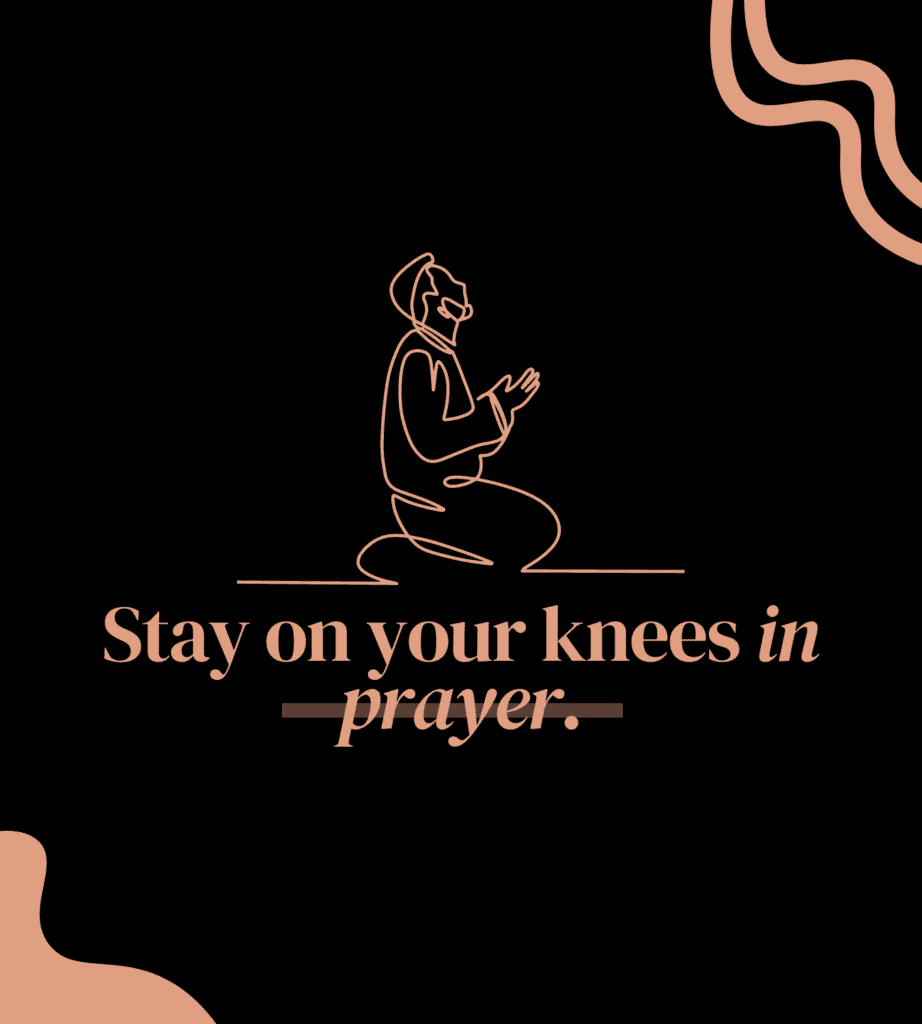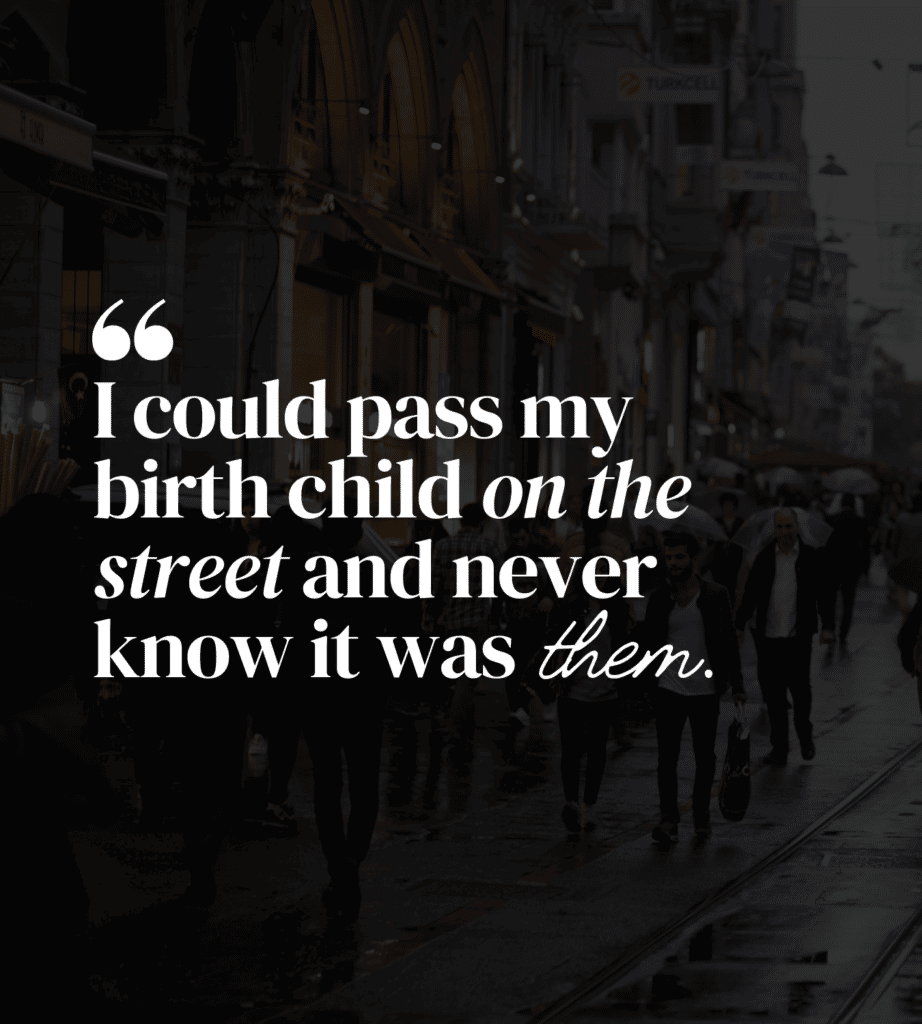When you placed your child into the arms of another family years ago, maybe you didn’t have a choice of openness or lost contact for whatever reason since then. Perhaps you’ve been hoping for a reunion with your adopted child all this time, or you could be nervous about the idea that they want to reunite with you. It may be a little of both! Whatever your feelings surrounding reunification after adoption, it is normal to feel various emotions.
Requesting a Reunion
When your child or their adoptive family reaches out to you, a rollercoaster of emotions may follow. First, breathe. Pause. Pray for God’s guidance. This certainly is an exciting moment, but it can also be full of a complex mixture of grief, questions and joy. For example, Karen reconnected with her daughter after 25 years. She says, “My emotions ranged from pure joy to overwhelming sadness.” It’s okay to feel that way. You can choose to respond when you feel ready. Going to counseling may benefit you and help process your response to reconnection, along with what you hope to achieve in reuniting or even your concerns. Additionally, talking with other birth moms who have walked through reuniting can help gain perspective from those who know what to expect.
Karen encouraged others to take baby steps. “Explain your reasons to your child and be honest.” Whether you feel excited to move forward or nervous to, your response can explain your hopes or your need for space to heal first.
What If I Feel Hesitant?
While some birth moms have been praying and feel ready to reconnect with their adopted child, having fears and hesitations about meeting their child is also very common. Reunification can have a profound emotional impact full of ups and downs for all sides. While it can be healing to know how your child is doing and find answers to the questions, it also can prick wounds that you thought were long left in the past.
When Karen reconnected with her daughter, it was a struggle she wasn’t prepared for emotionally. This was partly due to not having any resources to process after placement. “If you have not had any healing or counseling, you may not be ready to reconnect. When you are filled with shame and guilt that has not been dealt with, you cannot have healthy relationships, especially with your child. He or she has also experienced trauma and may have abandonment issues. If you are not ready, you may cause more pain and trauma for them and yourself.”
Addressing Trauma Beforehand
If you have unresolved trauma surrounding your pregnancy, conception or adoption, you might feel reuniting will cause too much pain to relieve. Dee – another birth mom – felt this fear as she walked through two reunifications with her daughter and son in different seasons of life. She chose to face the “fear of bringing up the past [and] the fear of having to answer questions [like] why?” as she met both of her children. Perhaps not many people knew you had a child, and having to explain the situation feels daunting to share over and over. Whatever your situation, know that you are not alone, and many birth moms struggle with similar thoughts.

Haven reconnected with her birth child when her daughter turned 18 and wanted to get to know her. “I was worried she would hate me for my decision to place her for adoption, that she would resent me for it.” Haven’s fear of resentment is very common, as well as a fear of rejection. However, there can be beautiful opportunities on the other side of fear if you decide to work through it with support. Haven shared, “Had I stayed and lived in my fear and not answered her message, I would not know the deep friendship I now have with her, [and] my kids wouldn’t have the most amazing big sister always looking out for them and loving on them.”
When you have the choice, always choose hope over fear.
Haven, Birth Mom
What Reunion Can Look Like
For Haven, their reunion was an experience beyond what she had ever hoped for. “It has been much easier than I had ever imagined and so much more healing. It’s been five years, and that has flown by. We are really great friends; I consider her one of my closest friends.” Ann, who has been reunited with her son for the last 25 years and considers him part of the family, says, “The grief was harder, but [it was] very easy to form a bond.”
Of course, not all reunions result in the desired outcome of friendships, so that is something to prepare for as well. Dee reunified with her children, and while both have chosen to close contact, it helped bring closure. “You have to be prepared to be mentally hurt and exhausted. Your feelings are like a roller coaster. I don’t regret meeting them. They gave me the closure that I needed to know that they were okay.”
Reunion May Not Be Easy

Karen shared that reconnecting with her adopted daughter was much harder than expected. “I felt so much sadness and shame. It was overwhelming at times. I tried to avoid being alone with [my adopted child] when possible. It was so hard to connect to her once the honeymoon phase of the reunion had passed. I don’t know why. I tried to be someone I wasn’t, thinking she would not love the real me. I had kept her a secret all that time and was not prepared emotionally to be in her life.” While her daughter has chosen to end their relationship, Karen used this experience to turn to Jesus for healing and make changes in her well-being.
“I have had healing and pray that the day will come when we can try again.” When you lean on prayer, you will find that it is the best strength and support you could ask for as you go through the process of a reunion.
Advice From Birth Moms
Hearing from other birth moms on what to expect in reconnection can be helpful in knowing what to expect, both for the hardships and the joys. Solveig, who reunited with her birth daughter, recommended to “not have expectations.” Letting the relationship flow naturally will allow space for everyone’s emotions at a comfortable pace.
Karen’s adoption experience has played a large part of deepening her faith and now ministering women at the pregnancy center she works at. Her advice speaks to the freedom that she has found in Jesus, “I would tell her she is amazing, forgiven and set free by her Heavenly Father. I would also tell her to seek help to deal with her grieving and suffering.” Finding a counselor and a birth mom support group can be valuable to the healing journey.
Haven encourages birth moms to “not let the fear of the what-ifs keep you from the possibility of something amazing! I do know that God is the author of it all and He calls us to have faith and trust that He is working it all for the good of those who love him. Hold onto that.”
And we know that in all things God works for the good of those who love Him, who have been called according to his purpose.
Romans 8:28
















